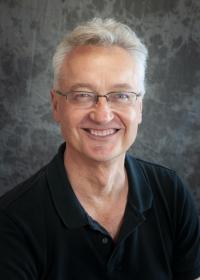By Clint Thompson
The current drought-like conditions sweeping across the Southeast should have specialty crop producers wary of insect-transmitted virus diseases.

The hot and dry weather favors pests like aphids and whiteflies. Growers should be concerned about subsequent diseases, says Ed Sikora, Professor and Extension Plant Pathologist in the Department of Entomology and Plant Pathology at Auburn University.
He discussed research being conducted by Auburn scientists during a specialty crop field day in Headland, Ala. on Oct. 7.
“If you have dry conditions for an extended period, you may see more aphid and whitefly activity in the area, especially here in the tri-state region. That’s what we’re seeing here today, a heavy population of whiteflies feeding on cucurbits. With more aphids and whiteflies, we often see more insect-transmitted virus diseases,” Sikora said. “Aphids transmit various mosaic-type plant viruses, and whiteflies have been shown to transmit viruses as well. It’s hard to control these diseases because technically it only takes one aphid or whitefly to transmit the virus to the host plant while feeding. Once the plant is infected, there is no cure.”
The solution may be alternative cultural methods, along with traditional chemical control. Scientists are evaluating methods that can delay infection of a crop. Some of these methods include the use of row covers and reflective plastic mulches to inhibit insects from feeding on plants early in crop development, therefore limiting the amount of damage once the plant eventually becomes infected.
“The later the plant becomes infected, the less severe the symptoms are going to be and the less effect on yield. If you can push back the insects a few weeks, you will likely reduce disease incidence and severity as well potential yield loss, ” Sikora said.
“Trying to control insects and insect-transmitted viruses is very difficult when you rely on insecticides alone. It is best to use insecticides in conjunction with other cultural control methods such as using virus-resistant varieties when available, adjusting planting dates and incorporating the use of row covers and reflective mulches where appropriate and cost effective.”
According to the U.S. Drought Monitor, all of Alabama is either abnormally dry or moderately dry. The worst area is in Southeast Alabama, stretching westward from Houston, Henry and Barbour counties to Escambia, Conecuh and Butler counties.










